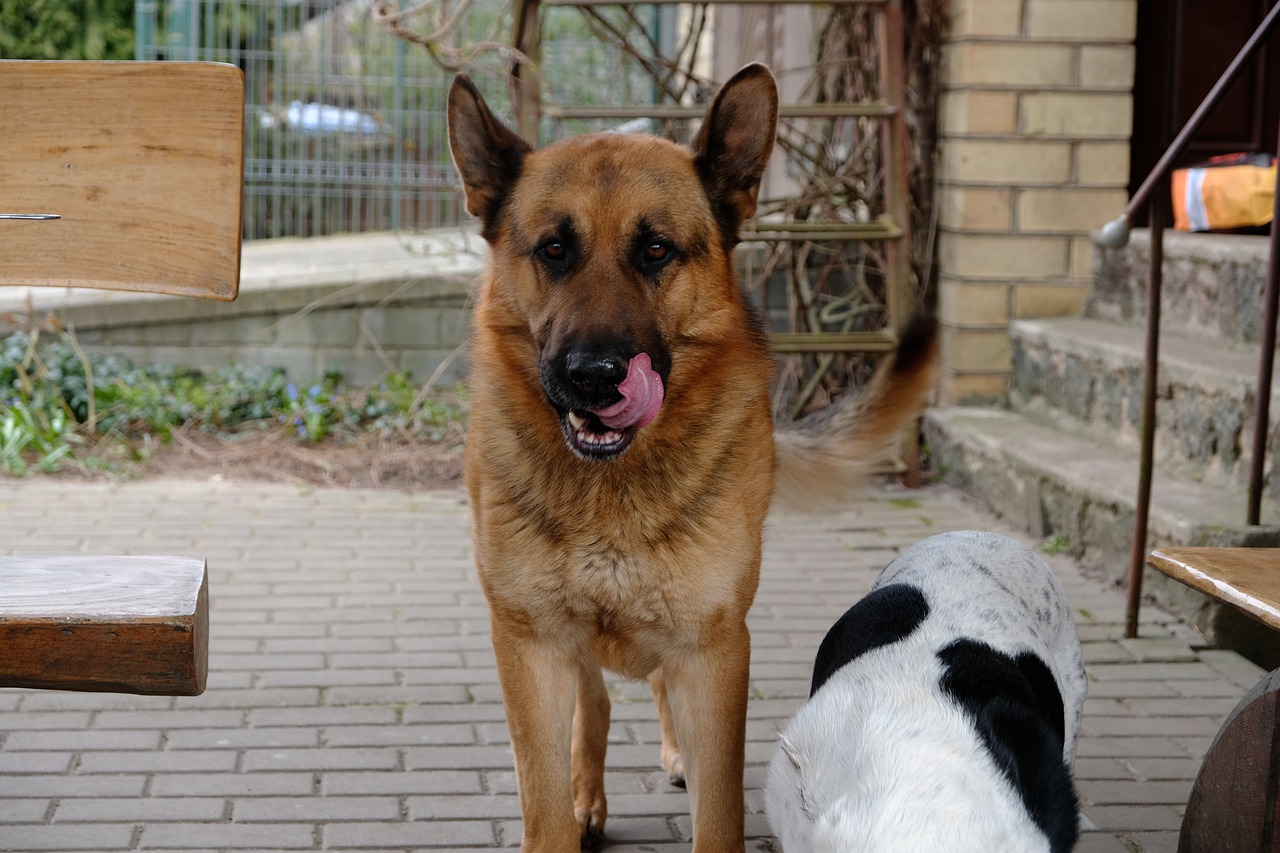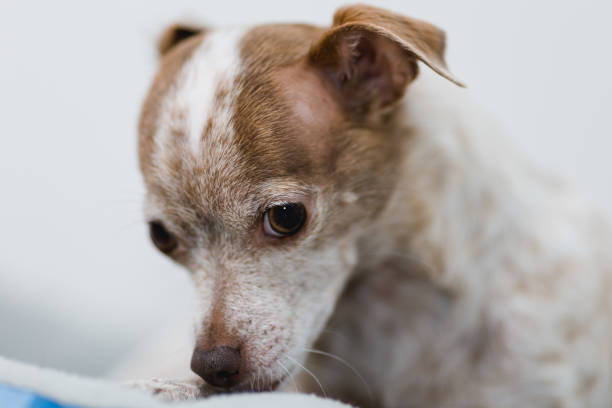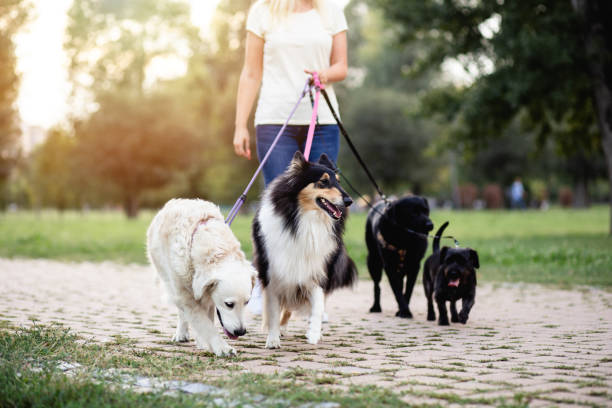What is Bloating in Dogs?
This post contains affiliate links. This means I will make a commission at no extra cost to you should you click through and make a purchase. Read the full disclosure here.
Dogs are beloved companions known for their loyalty and joyful presence. However, just like humans, dogs can experience health issues, and one common concern is bloating. Bloating, also referred to as gastric dilatation-volvulus (GDV) or twisted stomach, is a serious condition that affects many dogs. In this article, we will explore what bloating in dogs is, its causes, symptoms, potential complications, and preventive measures to ensure the well-being of our furry friends.
Understanding Bloating in Dogs
Bloating, or gastric dilatation-volvulus (GDV), is a condition where a dog’s stomach becomes distended and rotates on its axis. This rotation can lead to a blockage of blood flow and a dangerous buildup of gas, putting immense pressure on the surrounding organs. Bloating primarily affects large and deep-chested dog breeds, such as Great Danes, Boxers, and German Shepherds, but it can occur in any dog.
Causes of Bloating in Dogs
Several factors contribute to the development of bloating in dogs. One of the main causes is excessive air or gas accumulation in the stomach, often caused by rapid eating or swallowing air while drinking. Additionally, factors such as stress, overeating, or exercising immediately after meals can increase the likelihood of bloating.
Recognizing the Symptoms
It is crucial for dog owners to be aware of the symptoms of bloating to take prompt action. Some common signs include a distended abdomen, restlessness, unproductive attempts to vomit, excessive drooling, pale gums, and rapid breathing. As the condition progresses, dogs may exhibit signs of weakness, collapse, or even shock.
The Dangers of Bloating
Bloating is a life-threatening condition that requires immediate attention. As the stomach expands, it can press against major blood vessels, hindering blood flow to vital organs. This can result in tissue damage, organ failure, and, if left untreated, can be fatal within hours.
Seeking Immediate Veterinary Attention
If you suspect your dog is experiencing bloating, it is crucial to seek immediate veterinary attention. Time is of the essence in these situations, and prompt medical intervention can greatly increase the chances of a positive outcome. Contact your veterinarian or emergency clinic and describe the symptoms and behavior changes you have observed.
Preventive Measures for Bloating
While bloating cannot always be prevented, certain measures can reduce the risk for susceptible dogs. Implementing these practices can contribute to a healthier and happier life for your canine companion.
1. A Balanced Diet and Feeding Practices
Ensure your dog’s diet consists of high-quality, easily digestible food. Opt for smaller, frequent meals instead of one large meal, as this reduces the likelihood of rapid eating. Elevated feeding bowls can also be helpful in minimizing air ingestion.
2. Exercise and Activity Levels
Regular exercise is crucial for overall well-being, but it is essential to avoid vigorous exercise right after meals. Encourage moderate activity levels to prevent bloating.
3. Avoiding Stress and Anxiety
Stress and anxiety can contribute to digestive disturbances. Create a calm environment for your dog, especially during mealtimes, and avoid sudden changes in routine that may induce stress.
4. Limiting Water Intake
While hydration is essential, excessive water intake immediately before or after meals can increase the risk of bloating. Monitor your dog’s water consumption and ensure it is spread out throughout the day.
5. Post-Meal Management
After your dog finishes eating, discourage vigorous activity and provide a quiet resting area. This allows for proper digestion and minimizes the chances of bloating.
6. Regular Vet Check-ups
Routine veterinary examinations are vital in detecting any underlying health issues or potential predisposition to bloating. Regular check-ups allow for early intervention and preventive measures.
Breed Predisposition to Bloating
Certain breeds are genetically predisposed to bloating due to their body structure and anatomy. Great Danes, Boxers, German Shepherds, Doberman Pinschers, and other deep-chested breeds are at a higher risk. If you own a susceptible breed, it is essential to be extra vigilant and implement preventive measures.
Surgical Options for Bloating
In severe cases of bloating, where the stomach has twisted, emergency surgery is often required. The veterinarian will perform a procedure known as gastropexy to secure the stomach in place, reducing the chances of future occurrences. This surgical intervention aims to prevent gastric dilatation-volvulus from recurring.
Conclusion
Bloating, or gastric dilatation-volvulus, is a serious condition that can threaten a dog’s life if left untreated. Recognizing the symptoms, seeking immediate veterinary attention, and implementing preventive measures are crucial in ensuring the well-being of our canine companions. By understanding the causes and taking proactive steps, we can help reduce the risk of bloating and provide our furry friends with a healthier and happier life.
FAQs (Frequently Asked Questions)
Can small dog breeds experience bloating?
While bloating is more commonly observed in large and deep-chested breeds, small dog breeds can also be affected, although it is less common.
What is the average age range for dogs to develop bloating?
Bloating can occur at any age, but it is most commonly seen in dogs between the ages of 2 and 10.
Can I prevent bloating by feeding my dog a raw food diet?
While a raw food diet may offer certain benefits, there is no guarantee that it will prevent bloating. It is essential to consider other preventive measures and consult with your veterinarian.
Are there any supplements that can help prevent bloating in dogs?
Some supplements, such as probiotics and digestive enzymes, may aid in overall digestive health, but their effectiveness in preventing bloating is not yet fully supported by scientific evidence. Consult your veterinarian before adding any supplements to your dog’s diet.
Can bloating be cured without surgery?
In most cases, bloating requires emergency surgical intervention. Prompt medical attention is crucial to alleviate the condition and prevent further complications.










![The Pregnant Jack Russell Terrier [Important things you need to know] The Pregnant Jack Russell Terrier [Important things you need to know]](https://jackrusselterrier.net/wp-content/uploads/2023/03/istockphoto-1330401249-612x612-1.jpg)



